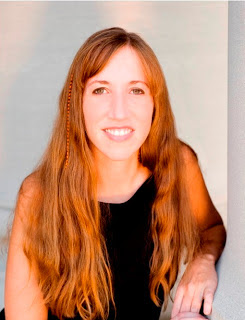Interview with CATHRYN
CONSTABLE
Cathryn Constable is a journalist whose articles have
appeared in Tatler and the London Sunday
Times among other publications. THE WOLF
PRINCESS is her first novel. She is married with three children and lives in
London, England.
TIME REBORN by Lee
Smolin. Smolin is a physicist and is arguing (I think) for the laws which
govern the universe to operate within time. I’m also reading a biography of Sir
Isaac Newton. Physics is on my mind.
What first sparked your interest in writing?
Reading.
What do you love the most about writing? The least?
When I’m alone and in my
study and writing, even if I’m not particularly pleased at what I’m writing, I
feel content. I think I’ve always had a ‘Rapunzel’ complex...a tower, solitude,
no interruptions.
The thing I like least
is when I can’t get to my desk. I’m really happiest in my own world.
Tell us a little bit about your writing process.
I have a pinboard at
home and I find images in magazines or on tumblrs that I find interesting. I
can’t say why they attract me, and I don’t ask. I print them out and put them
up and somehow, even though they might start off being quite disparate, a
pattern starts to emerge. For example, on my pinboard at the moment are images
of a velvet manicure, a carved angel, a girl in school uniform standing in an
open window, and a sheet of alchemical symbols. When I start writing, I don’t necessarily
know how these things fit together, but after spending some time thinking about
them, a pattern emerges.
I aim to write every day
(of course); the minute the house is empty, I make a cup of coffee and sit down
at my desk. At the moment, the day goes very quickly because I am writing a
first draft of my second novel, THE WHITE TOWER. There are times during the day
when things are light and easy and the work seems to shape itself; other times
it is like doing Geography homework (with apologies to any Geographers). I’ve
learned not to get panicked when things get a bit sticky: usually it means I’m
not paying attention properly and need to slow down and listen and watch.
What are your passions?
My family. It’s odd
because having children really does scupper you when it comes to writing. However,
becoming a mother is an extraordinarily creative process, too. You have to pay
attention really closely, which I think is good preparation for writing.
I read pretty much
constantly...I would feel quite agitated without a book. But there are so many
things I’m interested in. Basically, if you pay attention to anything it
becomes fascinating.
What inspires you?
I’m not sure what
inspires me. I know that I feel a sort of shiver of excitement whenever I encounter
something wonderful...That might be a sentence someone has written or a piece
of music. But I can become quite excited over a cup of coffee in the sunshine
on a winter’s morning.
Why middle reader?
When you remember your
own ten- or eleven-year old self, I think you probably have the purest
expression of yourself. It’s that extraordinary transition from childhood to
more than childhood and what happens to your mind and imagination in that time
is quite remarkable. Also, I’m not sure I could write about diamonds, white
wolves, and orphans in a way that would be appealing to an adult and if that
was what I wanted to write about, it seemed writing for middle grade readers
was a safer option.
How was THE WOLF PRINCESS born?
I read to my children a
lot when they were younger. I found copies of the books I had enjoyed and it
was a really lovely way to rediscover those stories. But we read a lot of
current writers, too. Also, in my own reading, I had given up on almost
everyone other than the Russians. I can’t say why, but nothing else appealed to
me. So without realising it, I started writing a children’s story set in
Russia.
Did THE WOLF PRINCESS require a lot of research?
I did spend some time
looking at photographs of forgotten Russian palaces, but I think that was
probably the only specific research I did. The rest of it came from years of
reading that was not done as research.
The WOLF PRINCESS feels magical even though it’s not
fantasy. Is that deliberate?
I didn’t make a
conscious decision to make the novel feel magical. I wrote what I would have
loved to have happened to me at that age. I think one of the disappointments of
being a grown up is that there are no diamonds in the chandelier.
Did any specific fairy tales or folklore influence THE WOLF
PRINCESS?
I collect old books of
fairy tales, often because the illustrations are so beautiful. There is one
Russian tale, Snegourochka, the Snow Maiden, which I think is one of the
saddest stories ever... I used a quote from it in the book... but really, there
was no one tale in particular.
Do you have any advice for aspiring authors?
Read.

































